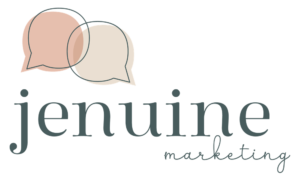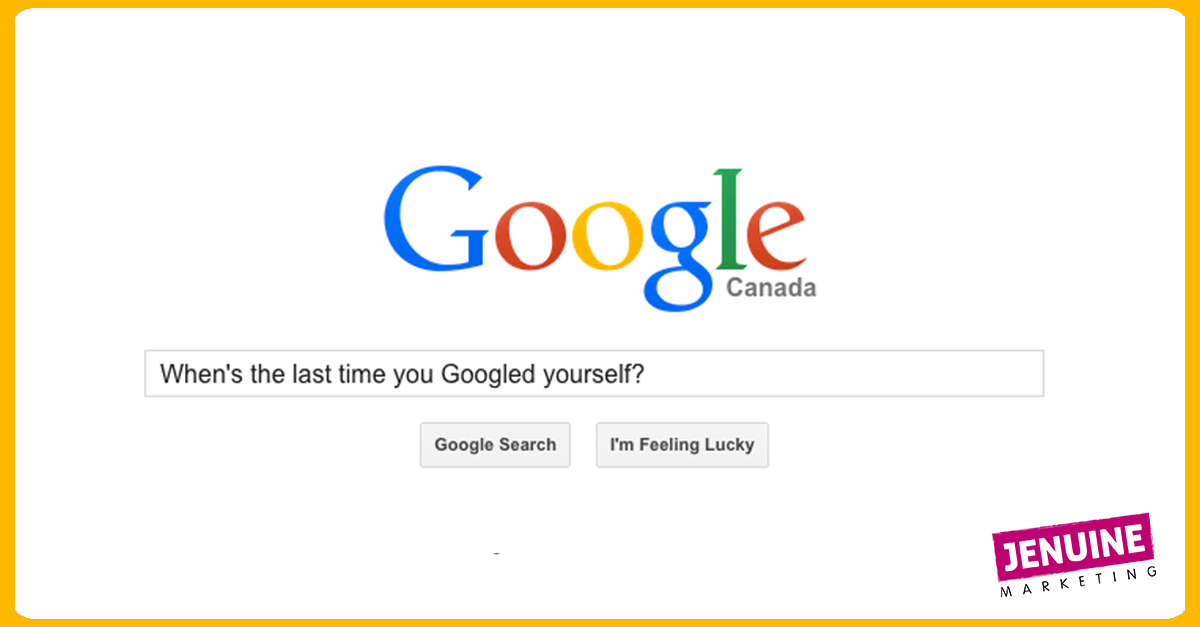Why is it important to Google yourself?
Everyone has a personal brand, which in my opinion is actually just a catchy buzzword for “reputation”. It’s displayed in the clothes you wear, the way you answer the phone, interact with friends and family, order your meal at a restaurant, and whether you shake someone’s hand or give them a kiss on each cheek. But your personal brand is also on display online, whether you’re aware of it or not.
Which leads me to the question, [blockquote]”When’s the last time you Googled yourself?”[/blockquote]
Last year? Never? Then think of this as your friendly reminder to head over to Google and have a quick peek at the results. Start by typing in your name, followed by your town or city. Sometimes, putting your name in quotation marks can help. Have a nickname? Or use both your maiden and married name? Try all of the combinations you can think of.
The first few pages of results will be the most relevant. I wouldn’t recommend going much past three pages, as you’ll just be inundated with irrelevant results. While you’re at it, click on “Images” at the top of your search results page to see what pictures show up for your search query.
As well, be aware that the results you’re seeing are highly skewed and are based on all of your previous searches. Two ways around this:
1. Open an incognito window in your browser and perform the search there
2. Go to adwords.google.com/d/AdPreview/ and change the location to suit your search
There. That wasn’t so bad. But now what?
Well, now that you know what’s hiding out there on the Wild, Wild Web about yourself, here’s some suggestions about how to proceed:
Reputation monitoring:
Make a quarterly reminder in your calendar to Google yourself. Also, set up a Google alert for your name and location; that way, you’ll receive an email alert if anything new is published about yourself online (https://www.google.ca/alerts).
Reputation management:
If there’s some content online that you really don’t like, there’s a few options:
- Contact the author of the website or blog and ask them to remove the content. This might not work, but it never hurts to ask.
- If the content is slanderous/libel and is hosted on a free site such as Blogger (Google) or WordPress, you can try contacting the company who owns the site. Since the author hasn’t paid for their own domain name, you might have some luck with this option.
- Stop worrying about the negative things that you found about yourself online and take control of your Google footprint. Get to work filling the first few pages of search results with positive content. After all, most people don’t click past the first few pages of results.
How to take control of your Google footprint:
Even if you think you don’t have a Google footprint, it is out there. Whether you’re trying to mitigate unfavourable search results or just beef up your online presence, here are some suggestions:
- Claim your vanity URL’s on Facebook and LinkedIn
- Make a page on about.me with your info
- Start a personal website and include an “About” page with your name and location
- Write blog posts for your company’s website and include your name and location in the bio section
- If you have a WordPress site, install the “WordPress SEO” plugin and make sure your name and location are in the page title and meta description for all applicable pages
- Write guest blog posts for other websites and sign off with your info, as well as a link to the “About” page on your website
- Comment on interesting articles that are related to your business and industry; often, these comments are indexed by search engines
- Use your real name when signing up for accounts such as Pinterest, Instagram and Twitter
- Sign up for Google+ and start posting; this is one of the best ways to take control of your search results!
Have any other suggestions? Please let me know in the comments!





“Comment on interesting articles” – works very well. For some reason the Pique seems to really be good for SEO. Tumblr is also working well now as is youtube.
Good points Patrick. I’ve noticed that the Whistler Question also seems to be really good.
And can’t believe I forgot to include YouTube – thanks for the suggestions!